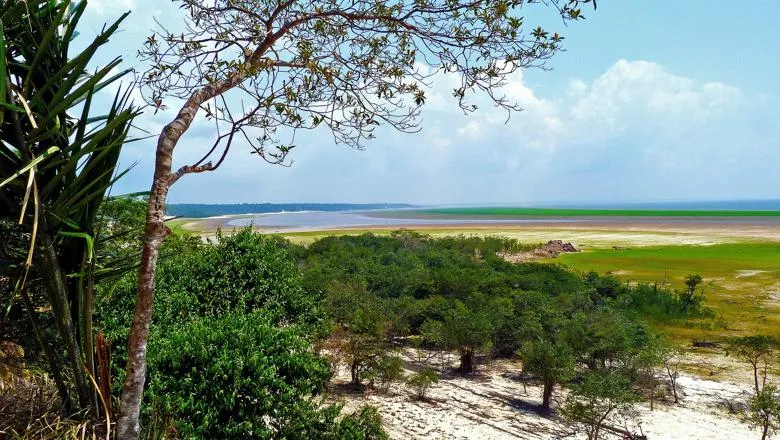The Amazonian biome is extremely relevant for issues such as clime change and global warming and must be understood in its complexity, not with a simple metaphor.
Dr Vinicius Mariano de Carvalho
31 October 2019
Simple or romantic notions of the Amazon rainforest will not be the answer to saving it
Dr Vinicius Mariano de Carvalho, Senior Lecturer in the King’s Brazil Institute and War Studies Department discusses the importance and complexities of the Amazon region.

Recent fires in the Amazon have once again focused attention on the threats faced to the rainforest and prompted global calls for it to be protected.
Dr Vinicius Mariano de Carvalho, Senior Lecturer in the King’s Brazil Institute and War Studies Department, says that the Amazon rainforest represents an extremely relevant area for global environmental security and so it is fundamental to discuss the current challenges and threats this area is under.
However, he also warns it is important not to romanticise the debate nor reduce it to the simple idea of it as “the lungs of the planet”.
“In order to reduce deforestation, it is necessary to discuss deeply about what we understand as development. The model and understanding of development that is currently in place brings deforestation with it,” he said.
He insists that concerned policy makers and global citizens should recognize that the region is part of a sovereign nation and that no solutions will come from the idea of returning to a pristine era.
Earlier this month the documentary film ‘Climate Amazon: The Forest of Today and Tomorrow’ was screened at King’s, followed by a discussion about the complexity of the Amazonian Biome and the global consequences of deforestation. The panel included: Dr de Carvalho; the film’s director, Tainá de Luccas; Dr Grace Souza, Kings Brazil Institute Fellow; and Athena Caron, Amazon Charitable Trust.
‘Climate Amazon: The Forest of Today and Tomorrow’ underscores the complexity of the situation by examining the relationship between the Amazon and the climate through a narrative that includes interviews with specialists in the region and scientists from some of the most renowned research institutions in Brazil.
“The rainforest is quite fragile and has been systematically a victim of deforestation and uncontrolled exploitation, with mining and other forms of depredation. Policies of conservation must be in place, as the global environmental security depends on that part of the planet,” said Dr de Carvalho – stressing that there is not a single and simple solution for the problems facing the region, making a holistic understanding and approach not only preferred, but necessary.
Dr de Carvalho emphasizes the great dimensions of the rainforest, its rich resources and the geo-strategic relevance of the region as critical points of understanding for those considering the future of the region.
More events about the Amazon are forthcoming. Follow @warstudies and @kingsbrazil on Twitter to stay up to date.

